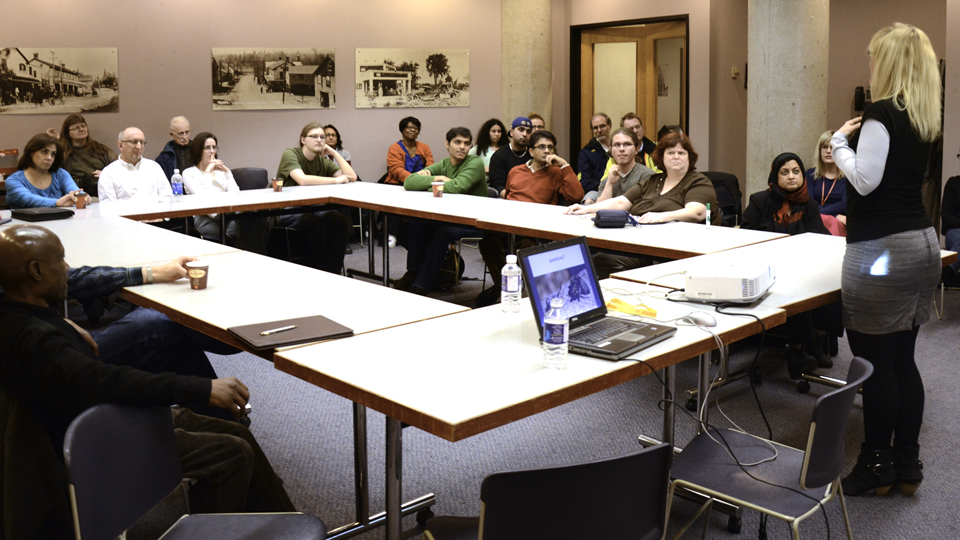Professor Monika Havelka gave a talk about the evolution of sexual reproduction on February 11 at the Mississauga Central Library.
Havelka is a senior lecturer in UTM’s Department of Geography and has taught courses in biology, ecology, and environmental science. She was a finalist in the 2010 TVO Best Lecturer Competition.
Havelka’s lecture, titled “Why Sex: The Evolution of a Paradox”, discussed the costs and benefits of sexual reproduction as compared with asexual reproduction. The paradox is that certain disadvantages to survival have evolved solely as aids in the pursuit of attracting a mate in both animals and plants.
“What’s one of the biggest problems with your sex life if you’re a plant? Here you’re growing in a spot, there you see someone you like to mate with. But you can’t rip up your roots and walk over to make the sparks happen, and that’s what flowers are all about,” said Havelka. “They exist simply to attract a mobile organism to the generative part to deliver sperm to the eggs of another plant. You can’t move yourself? Then you’ve got to get the UPS guy to deliver your gametes for you.”
But bright colours also make the plant more noticeable to animals who are likely to eat it or even trample on it, according to Havelka.
From a biological perspective, sex and reproduction are separate things, sex being the recombination of genetic material and reproduction being the generation of offspring. According to Havelka, there can be one without the other outside of the human context, as in the case of a bacterium cell that delivers DNA to another cell without producing offspring.
Havelka spoke of how in sexual reproduction, there is a risk of one parent mixing healthy genes with those of a parent, whose genes might have an undesirable mutation. Asexual reproduction—in which a single organism produces offspring with genetic material identical to its own—is a more efficient way of passing on genes, because the genetic material is not diluted by the material from another parent as it is in sexual reproduction.
“You’re successful in a Darwinian sense if you’re leaving as many copies of your DNA as possible in the next generations. Clearly, [an asexual] female is more successful than [a sexual] female,” said Havelka. “And this is where we talk about the paradox of sex. Why on earth would you have sex if you could clone yourself?”
But sex does have advantages, since both partners have strengths and weaknesses in their DNA and sexual reproduction mitigates harmful mutations that could otherwise accumulate over several generations. Both types of reproduction are advantageous in different circumstances, said Havelka: sexual reproduction is advantageous when the future of the animal’s environment is uncertain, and asexual reproduction is more efficient when the future is certain.
The Mississauga Freethought Association (a student club at UTM), Halton Peel Humanist Community, and the Central Library branch organized this event to celebrate Charles Darwin’s birthday on February 12.

